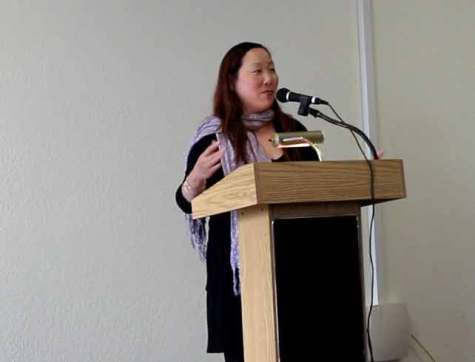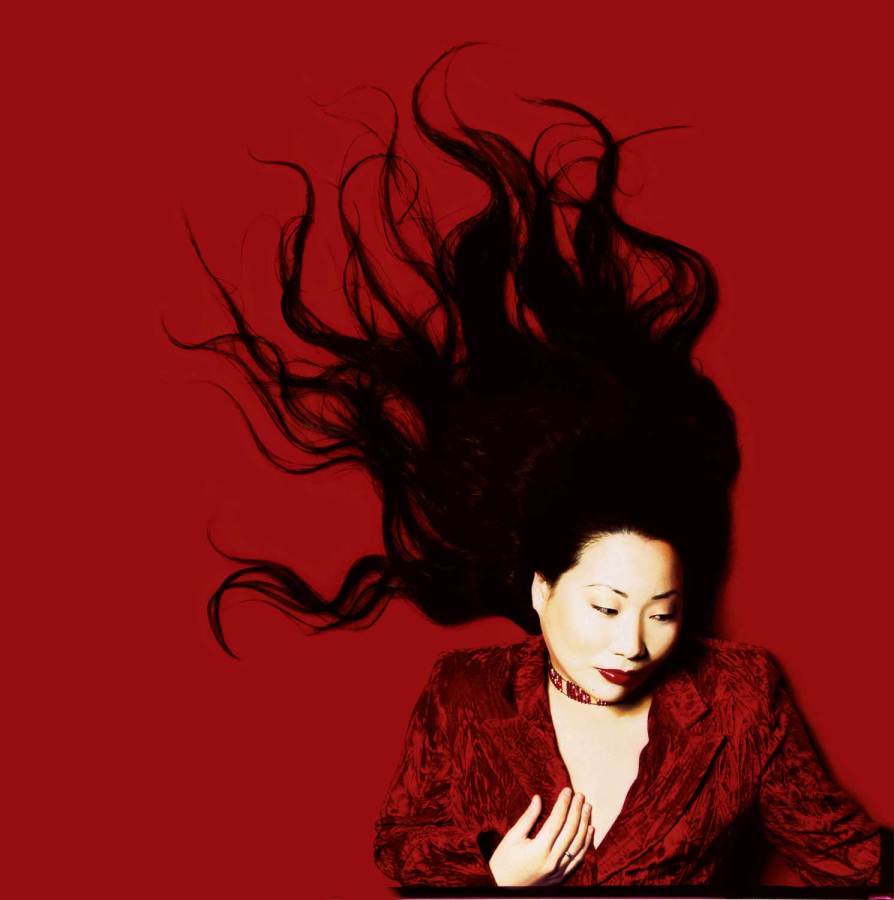‘Redefining Identity’: Magdalen Hsu-Li
 Magdalen Hsu-Li was welcomed to IVCC on Oct. 9 to lecture on diversity, using her sexual identity, gender, race, and disability to encourage creativity in the face of adversity.
Magdalen Hsu-Li was welcomed to IVCC on Oct. 9 to lecture on diversity, using her sexual identity, gender, race, and disability to encourage creativity in the face of adversity.
Hsu-Li’s lecture, sponsored by the Student Government Association, Gay-Straight Alliance, Diversity Team, and Office of International/Multicultural Education, she presented as a storytelling; her life experiences and the lessons derived from such.
In her own words, the Chinese-American, singer-songwriter, painter, and cultural activist Hsu-Li captivated her audience immediately with her unique air of free-spirited sophistication.
Her life-story began in the rural south; Martinsville, Va., a setting she associated with less-than-fond memories of her adolescent struggle with racism, Tourette’s syndrome, and relentless bullying.
“‘I am an American’ I told them,” Hsu-Li recalled defending herself against derogatory racial slurs. “I say what I am and people don’t believe me.”
However, she reminded the crowd that a person is so much more than their racial identifiers. “When asked, ‘What are you?’ I began identifying as artist, creative, mother… educated, compassionate, healer, lover,” Hsu-Li said.
Feelings of past frustration, isolation, and confusion surfaced when she recalled the crippling effects of Tourette’s syndrome, and with this, Hsu-Li emphasized the importance of looking to one’s inner voice for consolation and strength. Her own voice reminded her of self-empowerment, and she managed to overcome her disability through willpower alone.
Hsu-Li transformed her pain into beauty through art in both painting and music. The constraints of her past began to loosen when she attended the Rhode Island School of Design, defying the wishes of her traditional, monetary-oriented family as well as her usual interests.
“I didn’t paint the picture the way I imagined it, the picture painted itself,” Hsu-Li said in regards to her career choice. “There is nothing certain or constant in life except for change.”
Hsu-Li described her college experience as a culture shock, which became extremely liberating. By distancing herself from the anxiety of her hometown, she felt free and compelled to explore her sexuality.
However, even after identifying as bisexual, Hsu-Li said the label was not a perfect fit: “I see gender as an amazing continuum. The way you play your instrument, that’s your sexuality.”
She made it clear to her listeners that sexuality is greater than the labels: whatever way you define yourself is okay.
Hsu-Li embraced an extremely positive outlook on life, providing reassurance to those experiencing self-doubt due to the opinions of others. She addressed that even within the LBGT community discrimination occurred against her as a bisexual, just as it did as a Chinese-American in the south.
“Take opportunities to change a person’s trajectory or perspective,” she said. “Be non-combative and non-confrontational. Be a light-bringer.”
Hsu-Li found her “dharma,” her “soul’s purpose” despite all adversity, which a friend described to her as “showing people what’s on the other side of their own fences.”
This encouragement inspired her to share her story with the world, IVCC included. Hsu-Li’s lectures and music are heard all over the country.
Her gift for assisting others aside, Hsu-Li managed to do extremely well for herself; receiving a prestigious art scholarship jump starting her career, playing her music at numerous women’s festivals and the OK Hotel in Seattle, Wash., embracing her sexuality, finding her partner and having a son.
Overall, Hsu-Li encourages her audience to seek a greater understanding of themselves, their identity, and their dharma by taking risks and being honest with themselves and others.
The key to overcoming all struggles is intrapersonal: “When you start believing in yourself, people start believing in you.”

